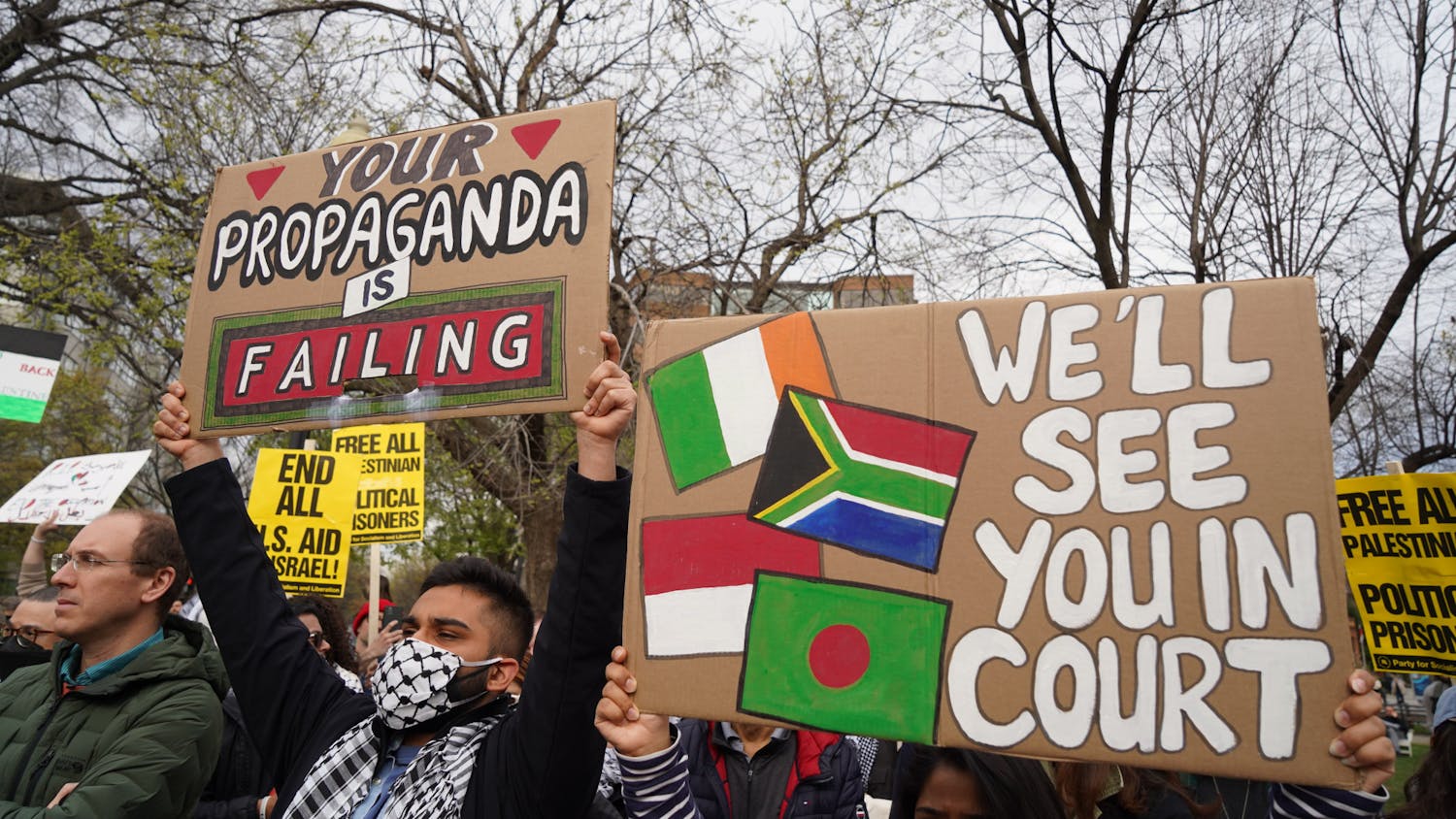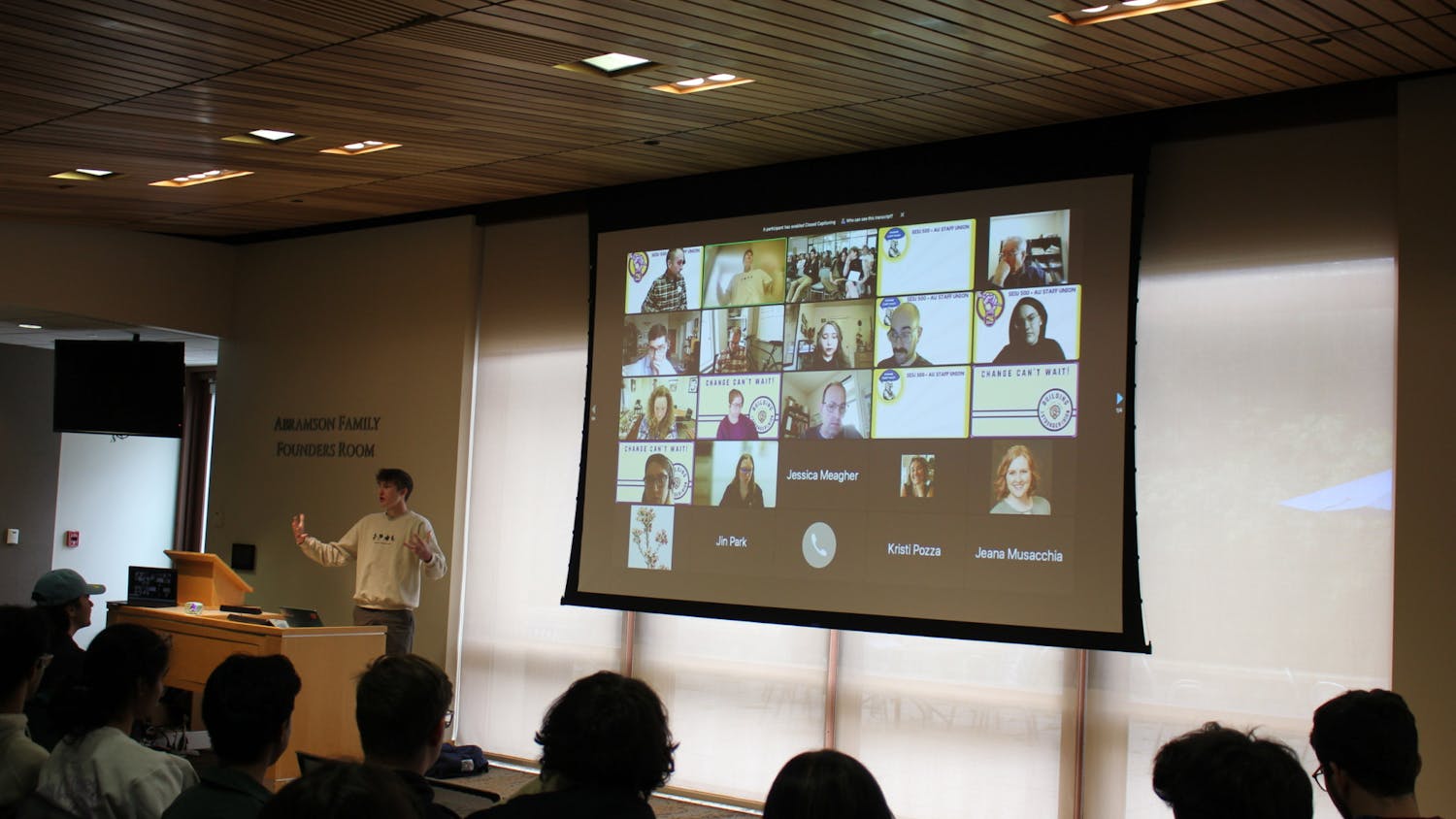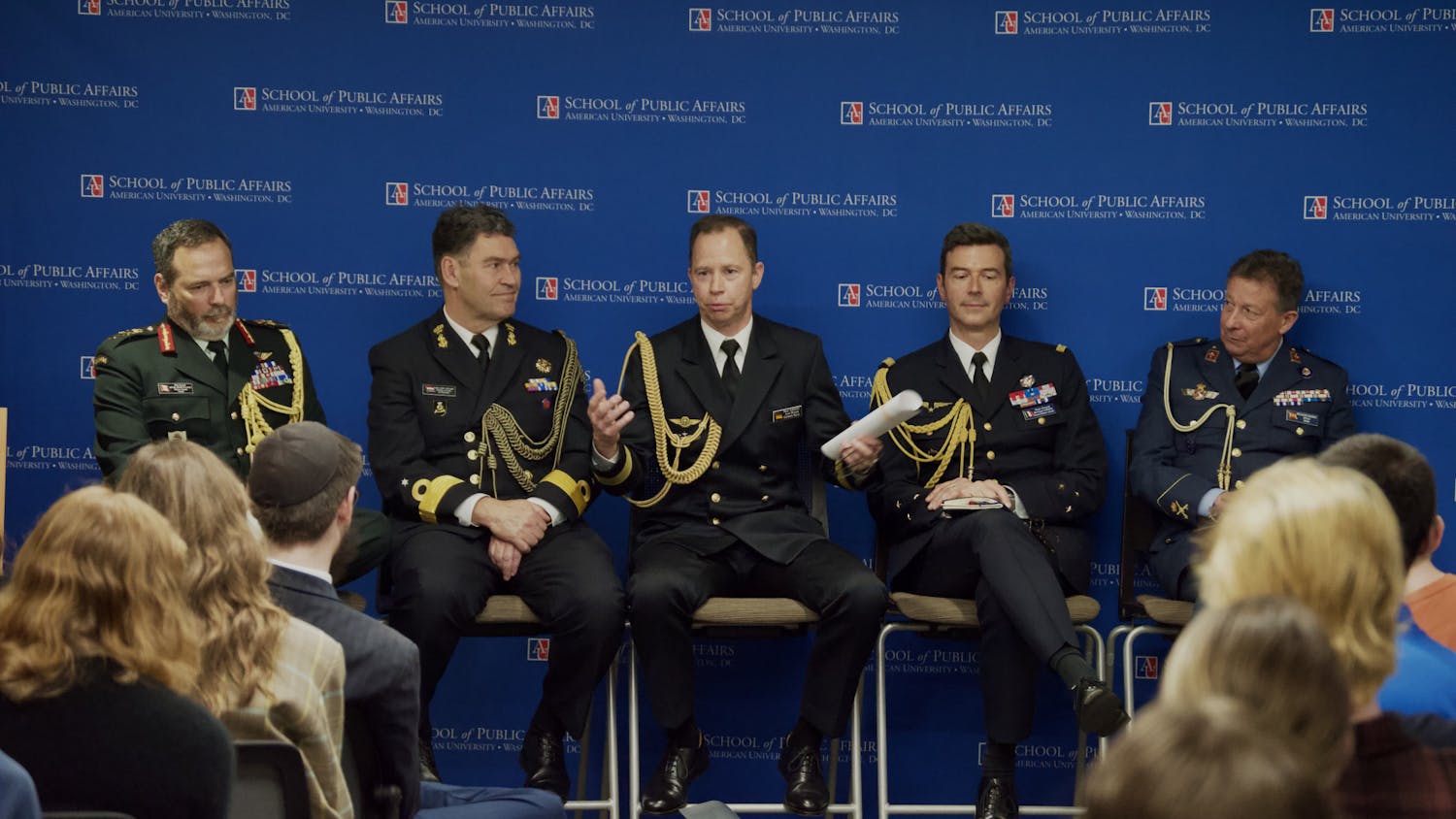It may be surprising to hear that an Air Force interrogator in Iraq would bring the equivalent of hot chocolate to his detainee each day to make him feel at ease or would familiarize himself with the Quran before entering the country, but that is just what Matthew Alexander did.
Alexander, a former senior interrogator for the U.S. Air Force and author of “How to Break a Terrorist,” came to AU Tuesday night for an event sponsored by Amnesty International and AU Vets. He is perhaps best known for his vital role in the capture of al-Qaeda leader Abu Musab al-Zarqawi. But Tuesday night, Alexander seemed more concerned with convincing the intimate audience in the Battelle Atrium that non-coercive interrogation is more efficient and more ethical than the harsh interrogation techniques used by the military in the past.
| JORDAN COUGHENOUR / THE EAGLE |
In order to capture al-Zarqawi, Alexander had to use his heart, for it was solely with non-violent tactics that he found the men that led him to the infamous insurgent leader, he said.
“My basic approach [to interrogation] is just to talk to somebody and find out where they’re from, what’s their background,” Alexander said. “What I’m trying to figure out ultimately is why they decided to pick up bombs against us. And what motivates them.”
One man he was assigned to, Tariq, was the 30-year-old son of a farmer. Tariq looked like he had just walked out of a high-end salon in Georgetown, according to Alexander.
Tariq had been a university student before the United States invaded Iraq, but had dropped out shortly after the fall of Saddam Hussein’s regime when his father died. He had helped his mother run their farm for a while and then married six months before his capture. Though Tariq had not seen his wife since their honeymoon, he recalled that every morning she would bring him hot chocolate for breakfast.
“Well, I didn’t have hot chocolate but what I had was a huge container of Gatorade chocolate shake,” Alexander said. “So every morning I would get one of those chocolate shakes and heat them up in the microwave, bring it in, and hand it to him as we sat down to have our discussion because I wanted him to feel like he was at home. I wanted him to know that I wasn’t somebody that he had to fear and that cooperating with me wasn’t going to have negative consequences.”
Alexander continually emphasized that, in his opinion, interrogation and what it means to be an interrogator is grossly misunderstood.
“Interrogation is about cooperation, it’s not about domination,” he said. “Too many times interrogators have gone into the interrogation booth seeking retribution or seeking dominance and that’s not what interrogation is about. It’s about understanding individuals and it’s not about perpetuating stereotypes.”
Many of the detainees in the Middle East believe that they will suffer an Abu Ghraib-like fate if they give in to their interrogators Alexander said. The first person Alexander interrogated in Iraq told him, “If I had a knife right now, I’d cut your throat.”
“I mean this guy just hated Americans,” Alexander said. “He said, ‘You Americans, you caused our lives to be a living hell. You came into Iraq, you toppled Saddam ... you put us out of work with de-Baathification. We didn’t care about Saddam, we didn’t care about the Baath party, but we had to be part of it to get a job. And you’ve given us no way to feed our families ... You gave us no way to turn except to al-Qaeda to defend ourselves and to secure resources ... This is all your fault.’”
The next day Alexander came in and said: “Abu Aly, I want to apologize. I’m going to be the one that’s going to apologize to you as an American for the mistakes that we’ve made in Iraq because we have made mistakes and I’m sorry.”
Alexander said that apology, just hearing an American say he was sorry, moved Abu Aly to tears.
“And a day later Abu Aly was providing us with targets,” he said.
In the end, Alexander said there is only so much the military and law enforcement can do when it comes to terrorism. No interrogator is successful every time. And for Alexander, success is not what’s important because the primary goal is to find information that will save lives, not convict terrorists.
“Eliminating prejudice, eliminating intolerance, educating people, that’s what stops terrorism,” he said. “The military and law enforcement - we are merely a band-aid. We will not cure the problem.”
Even if an interrogator is unsuccessful, Alexander said he believes it is important for him to adhere to the American principles of morality and non-violence. Torture is slower, less effective and more costly to America in the long run, he said.
“One of the most disappointing things about the debate over torture and abuse is the doubt that it has raised in the minds of the public that American interrogators cannot do their job without enhanced interrogation techniques,” Alexander said. “When we give up American principles, we’ve lost this war.”
You can reach this writer at news@theeagleonline.com.




